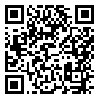Volume 11 -
IJMEHM 2018, 11 - : 26-34 |
Back to browse issues page
Download citation:
BibTeX | RIS | EndNote | Medlars | ProCite | Reference Manager | RefWorks
Send citation to:



BibTeX | RIS | EndNote | Medlars | ProCite | Reference Manager | RefWorks
Send citation to:
Seyed Mortaz S S, Delavar P, Zafarghandi N, Yektaei M R, Moarefi Q, Davati A, et al . Which Is The Most Determinative In Emergency Cases? Patient Autonomy or Physician's Decision: A Clinical Case-Study. IJMEHM 2018; 11 :26-34
URL: http://ijme.tums.ac.ir/article-1-5971-en.html
URL: http://ijme.tums.ac.ir/article-1-5971-en.html
Seyed Saied Seyed Mortaz * 
 1, Parvin Delavar2
1, Parvin Delavar2 
 , Nafiseh Zafarghandi3
, Nafiseh Zafarghandi3 
 , Mohammad Reza Yektaei4
, Mohammad Reza Yektaei4 
 , Qolamreza Moarefi5
, Qolamreza Moarefi5 
 , Ali Davati6
, Ali Davati6 
 , Shiva Rafati7
, Shiva Rafati7 
 , Siamak Afshin Majd8
, Siamak Afshin Majd8 
 , Ahia Garshasbi3
, Ahia Garshasbi3 


 1, Parvin Delavar2
1, Parvin Delavar2 
 , Nafiseh Zafarghandi3
, Nafiseh Zafarghandi3 
 , Mohammad Reza Yektaei4
, Mohammad Reza Yektaei4 
 , Qolamreza Moarefi5
, Qolamreza Moarefi5 
 , Ali Davati6
, Ali Davati6 
 , Shiva Rafati7
, Shiva Rafati7 
 , Siamak Afshin Majd8
, Siamak Afshin Majd8 
 , Ahia Garshasbi3
, Ahia Garshasbi3 

1- Associate Professor of Surgery, Medical Ethics Department, School of Medicine, Shahed University, Tehran, Iran
2- 2Assistant Professor of Anesthiology, Medical Ethics Department, School of Medicine, Shahed University, Tehran, Iran
3- Associate Professor of Obstetrics and Gynecology, Medical Ethics Department, School of Medicine, Shahed University, Tehran, Iran.
4- Assistant Professor of Islamic Mysticism, Medical Ethics Department, School of Medicine, Shahed University, Tehran, Iran.
5- Assistant Professorof Islamic Theology, Medical Ethics Department, School of Medicine, Shahed University, Tehran, Iran
6- Associate Professor of Social Medicine, Medical Ethics Department, School of Medicine, Shahed University, Tehran, Iran
7- Assistant Professor of Pediatrics, Medical Ethics Department, School of Medicine, Shahed University, Tehran, Iran
8- Associate Professor of Neurology, Medical Ethics Department, School of Medicine, Shahed University, Tehran, Iran
2- 2Assistant Professor of Anesthiology, Medical Ethics Department, School of Medicine, Shahed University, Tehran, Iran
3- Associate Professor of Obstetrics and Gynecology, Medical Ethics Department, School of Medicine, Shahed University, Tehran, Iran.
4- Assistant Professor of Islamic Mysticism, Medical Ethics Department, School of Medicine, Shahed University, Tehran, Iran.
5- Assistant Professorof Islamic Theology, Medical Ethics Department, School of Medicine, Shahed University, Tehran, Iran
6- Associate Professor of Social Medicine, Medical Ethics Department, School of Medicine, Shahed University, Tehran, Iran
7- Assistant Professor of Pediatrics, Medical Ethics Department, School of Medicine, Shahed University, Tehran, Iran
8- Associate Professor of Neurology, Medical Ethics Department, School of Medicine, Shahed University, Tehran, Iran
Abstract: (5970 Views)
A 62-year-old man referred to the emergency department 48 hours ago with chief complaint of repeated bloody vomiting. The patient is admitted and the necessary measures are taken. Within 24 hours, he received 6 units of blood. The patient has undergone endoscopy, but endoscopic endorsement has failed to stop the bleeding. The surgeon consulted and visited the patient. He considered urgent emergency laparotomy. The patient is alert and refuses surgery. The hemodynamic status of the patient is not stable and gastrointestinal bleeding continues. These questions are posed to medical staff and hospital managers: "What is our duty”? "Should we respect the choice of the patient and witness the progress of the disease and deterioration of the patient's condition"? "Can he be discharged from the hospital on the basis of the patient's refusal to take medical treatment"? "Can we take appropriate diagnostic and therapeutic measures with the use of legal capacity and support despite patient’s opposition? "How can one regard autonomy, beneficence, and nonmaleficence at the same time, in this situation "? In this study, which is one of the problems of medical ethics, the ethical, legal, and health aspects of the presented patient are discussed.
Type of Study: Case Study |
Subject:
Medical Ethics
Received: 2018/01/28 | Accepted: 2018/07/23 | Published: 2018/04/15
Received: 2018/01/28 | Accepted: 2018/07/23 | Published: 2018/04/15
| Rights and permissions | |
 |
This work is licensed under a Creative Commons Attribution-NonCommercial 4.0 International License. |



